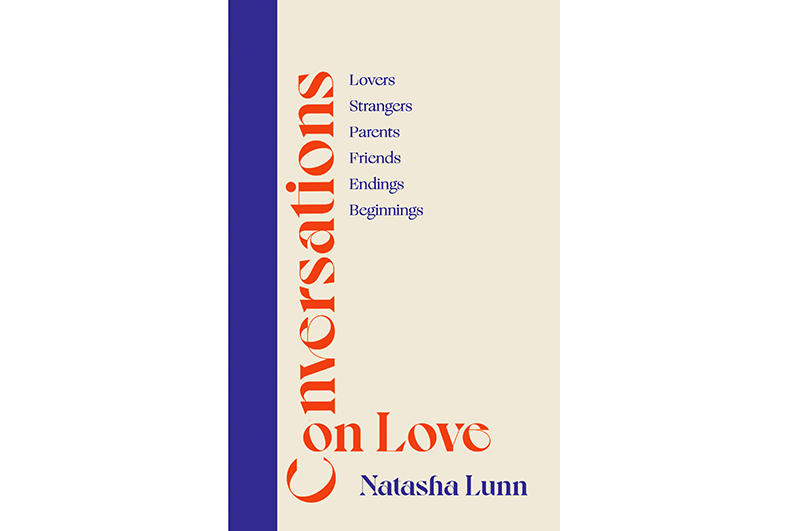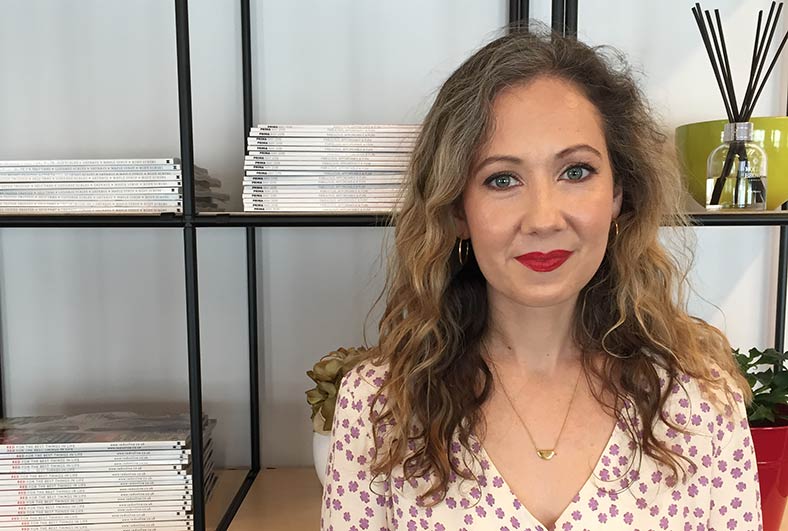Journalist as Author: Natasha Lunn, Conversations on Love

Back in 2017, Natasha Lunn started writing a bimonthly email newsletter with interviews on the different kinds of love we experience. Fast forward four years, and the newsletter Conversations on Love has now become a Sunday Times bestseller.
Natasha, who works as features director for Red magazine, decided to investigate the topic of love further by talking to a mix of experts and renowned writers including Alain De Botton, Roxane Gay, Dolly Alderton and Candice Carty-Williams. From falling in love slowly to the science of sex, the book covers a whole range of themes associated with love. We caught up with Natasha to find out what the writing process was like and what her next projects are.

Can you introduce your book in a couple of sentences?
Conversations on Love is a quest to understand how we find love, how we sustain it, and how we survive when we lose it. I try to answer these three questions through a mix of personal essays and interviews with authors (like Roxane Gay, Ariel Levy and Lisa Taddeo) and psychologists (from Alain de Botton to Philippa Perry and Esther Perel). My hope is that it is a book that will help all of us pay more attention to the many different forms of love in our lives. Not just to our romantic relationships, but to our families and friends and communities, and also to ourselves. Ultimately, it is a tribute to the beautiful mystery of love, and a reminder of how lucky we are to have opportunities to choose love each day we are here on this earth.
Could you tell us about how you came to write the book?
Conversations on Love originally started as an email newsletter, in which I interviewed writers and experts about love. I decided to begin investigating love because, for a long time, I felt it was something I had failed at. I used to think I would never find love, or that it would never find me, and spent a lot of time worrying that I would be alone forever. But even as I grew older, I realised that I often overlooked one form of love in the search for another. I realised that my view of love was a narrow one. Even though I had spent years obsessing over it, actually, I knew very little about what love really was, or how I could learn to be more present in it. And so, I decided to ask more questions, and the answers I found along the way changed my life.
How did you find the process of interviewing the various experts featured in the book?
Each conversation taught me something new that changed how I behave in love. For example, relationship coach Susan Quilliam taught me how to self-regulate in the early stages of an argument. Mira Jacob reminded me that you can find newness and fragility and mystery in a relationship, even after decades together. And Emily Nagoski showed me that understanding the difference between responsive and spontaneous desire could change the way I viewed – and enjoyed – sex.
Did you feel more free to express yourself while writing the book compared to your regular journalism?
At work I rarely write about my personal life, so it was a very different experience. In a way I was more free: I had more words to play with, I could choose the structure and I was more in control. But it was more difficult than the journalism I do day-to-day, both technically and emotionally. Because of the structure, I had to find a way to stitch together the interviews with my own personal experiences, which was very hard!
And I was also writing about shared experiences, particularly in my marriage. I’m lucky that my husband was generous in what he allowed me to share about our life, but I still felt a responsibility to tell those stories fairly. I wanted to be honest and vulnerable with the reader, and to push things as far as I could, without crossing a line. I think, often, it’s when you feel you are skating on thin ice that the writing connects with someone most deeply. So, it was both a delicate and an interesting process.
Are you working on another book, or do you have other projects under way?
At the moment I am focusing on writing my Conversations on Love newsletter while juggling a full-time job and being present with my family and friends. I do have plans to grow Conversations on Love into something bigger, but I think I will know when the time is right to pursue that. For now, I want to take some of the lessons I’ve learnt in CoL and apply them to my life. Which is another way of saying I want to work harder at paying attention to the people I love.
We talk a lot about being more ambitious at work, setting career goals and making big plans to succeed more. But in the next decade I want to be ambitious in my relationships. I don’t want to be so busy that I miss pieces of them.
What advice would you give to other journalists thinking about writing a book like Conversations on Love?
I would say that, for a long time, I gave myself a hard time for all the books I never wrote. There were so many projects I’d intended to start and never did; so many books I had written in my mind (and outlined on a google doc) but never finished. I felt like, by 33, I’d let a lot of opportunities slide and that that was a big failing. But now I’m glad that I waited, and that I spent time figuring out what I really cared about.
By the time I knew I wanted to write a book about love, I didn’t want to rush it. Without knowing it, I spent years researching the topic while writing my newsletter. I spent a long time writing the proposal too, which was an opportunity to think long and hard about the structure of the book and what its purpose would be. My advice would be, in a world where it can feel like people are writing a book a year: don’t be afraid to take your time. Writing a book is so hard, and it can be lonely too. The thing that kept drawing me back to my desk was my passion for the subject I was writing about. That’s still what pushes me to write the newsletter now, even when my baby has kept me up the night before and there’s a part of me that wants to give up and get some sleep. I don’t give up because I am still so fascinated by the mystery of love, and I think I always will be. If you can find a subject you feel that way about, then I think that will help you to push through the self-doubt and self-loathing, to keep going when it would be easier to give up.
What books are you reading right now, or about to pick up?
I’m reading East Side Voices, a collection of essays commissioned by my friend Helena Lee (who has also written one of them herself). And next on my reading list is Foreverland by one of my favourite writers Heather Havrilesky, a book about her marriage.
If I’m a PR professional with a story or another opportunity for you, how should I get in touch?
For stories for Red, it’s best to pitch to me via email (bearing in mind we work three months ahead!).
Natasha Lunn is the features director at Red magazine and author of Conversations on Love. To subscribe to the Conversations on Love newsletter sign up via @Conversations_on_love on Instagram.


